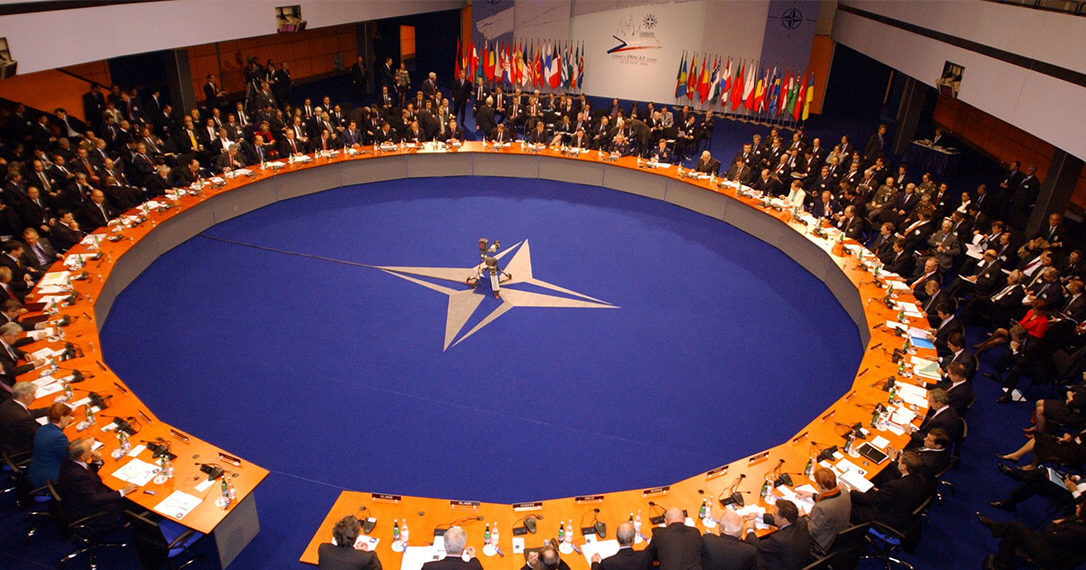NEWS
Why Russia vs. Ukraine could be the end of Europe

The conflict between Russia and Ukraine is not just a regional crisis; it’s a ticking time bomb that could destabilize Europe and reshape the global order.
With Russian President Vladimir Putin slamming the door on peace negotiations, the stakes have never been higher. As Europe grapples with the fallout from this brutal war, the question on everyone’s mind is: What happens next?
Read More:
Russian flags: “There is a plot to overthrow Tinubu” — Shehu Sani
Putin rejects peace talks with Ukraine
A Continent on the Brink: The Ripple Effects of War
The war has already sent shockwaves across Europe, triggering an energy crisis, an influx of refugees, and rising fears of military escalation. The European economy, heavily dependent on Russian energy, is teetering on the edge as sanctions and countersanctions push energy prices to record highs. With winter approaching, the prospect of an energy shortage looms large, threatening to plunge the continent into a deep recession.
Beyond the economic impact, the war has unleashed a humanitarian catastrophe. Millions of Ukrainians have fled their homes, overwhelming neighboring countries like Poland, Hungary, and Romania. The refugee crisis is stretching social services to their limits and could spark social unrest if the conflict drags on.
The Nightmare Scenario: Escalation and Fragmentation
Perhaps the most alarming consequence of the conflict is the risk of military escalation. With Russian forces operating dangerously close to NATO borders, the possibility of an accidental or intentional spillover is a constant threat. Such an incident could trigger a wider war, dragging the entire continent into a conflict that no one is prepared for.
Moreover, the war is sowing seeds of division within the European Union (EU) and NATO. With member states holding differing views on how to handle Russia, political fragmentation could weaken these alliances, undermining Europe’s ability to respond effectively to the crisis.
Preventing a European Meltdown: What the West Must Do
So, what can the West do to prevent Europe from unraveling with tension rising between Russia and Ukraine? The answer lies in a multi-faceted strategy that addresses both immediate threats and long-term stability.
- Strengthening Defense: NATO must bolster its eastern flank to deter any potential Russian aggression. A strong, united military presence is essential to prevent the conflict from spilling over into NATO territory.
- Economic Resilience: Europe must reduce its dependence on Russian energy by diversifying its energy sources and investing in renewables. The EU’s REPowerEU plan is a step in the right direction, but more aggressive action is needed to secure energy independence.
- Humanitarian Efforts: The refugee crisis demands immediate attention. European countries must continue to provide aid to Ukrainian refugees while developing long-term integration strategies to maintain social cohesion.
- Diplomatic Pressure: While Putin has rejected peace talks, the West must keep the diplomatic channels open. Sanctions should be carefully calibrated to pressure Russia while minimizing collateral damage to global markets.
- Supporting Ukraine: The West must continue to arm and financially support Ukraine. A strong, sovereign Ukraine is crucial not only for its own survival but also for European security.
- Countering Disinformation: Russia’s use of disinformation and hybrid warfare threatens to undermine European stability. The West must invest in cybersecurity and media literacy to combat these threats and protect democratic institutions.
The Path Forward
The conflict between Russia and Ukraine is far from over, and its potential to destabilize Europe is real and immediate. But with a concerted effort, the West can mitigate the risks and work towards a more stable and secure future. The road ahead is fraught with challenges, but the alternative—an unraveling Europe—is simply too dangerous to contemplate.